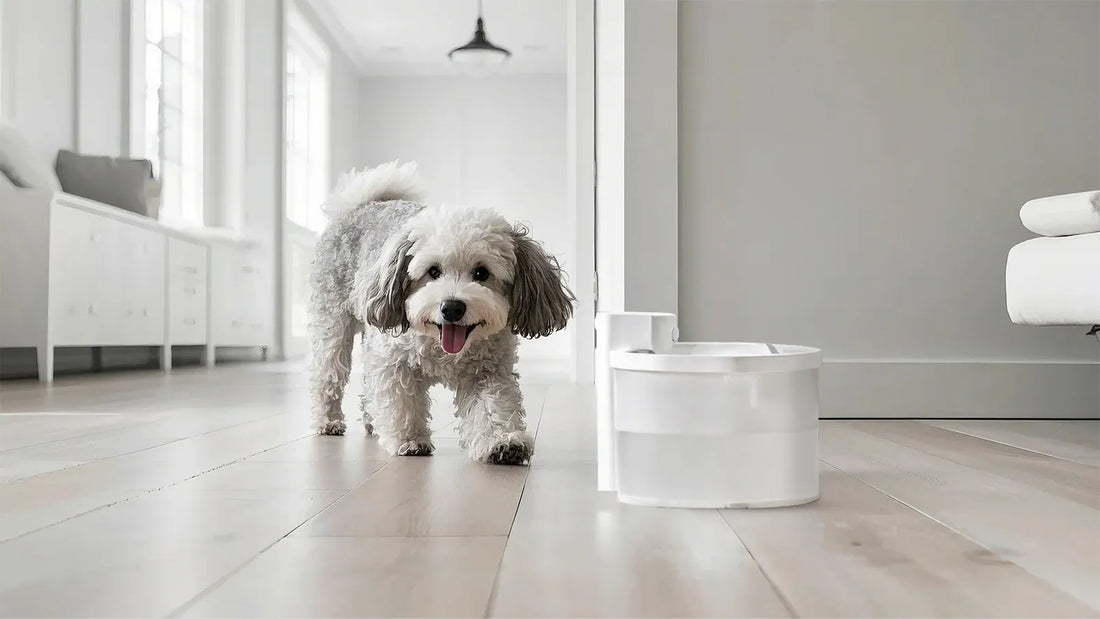If you've noticed your dog drinking a lot of water recently, it's natural to feel concerned. While increased thirst can be a sign of something serious, it can also be completely normal depending on the circumstances. Understanding the reasons behind this behavior is crucial for ensuring your furry friend's health and well-being.
Why Is My Dog Drinking More Water Than Usual?
There are several reasons why your dog might be drinking more water than usual. Some of these reasons are harmless, while others may require immediate attention. Let's explore the most common causes.
1. Hot Weather and Increased Activity
Just like humans, dogs tend to drink more water when the weather is hot or after physical activity. If your dog has been playing outside or going for long walks in the sun, their increased thirst is likely a natural response to stay hydrated.
2. Dietary Changes
Changes in your dog's diet can also lead to increased water consumption. For example, if you've recently switched to a dry food diet, your dog may need more water to compensate for the lack of moisture in their meals.
3. Medications
Certain medications can cause your dog to feel thirstier than usual. If your dog has recently started a new medication, consult your veterinarian to see if increased water intake is a known side effect.
When Should I Be Concerned?
While increased water consumption can be normal, there are times when it may indicate an underlying health issue. Here are some signs that it's time to consult your veterinarian.
1. Frequent Urination
If your dog is drinking more water and also urinating more frequently, it could be a sign of a urinary tract infection, diabetes, or kidney disease. These conditions require prompt medical attention.
2. Lethargy and Weight Loss
Excessive thirst accompanied by lethargy or unexplained weight loss can be a red flag for serious conditions like diabetes or Cushing's disease. If you notice these symptoms, don't delay in seeking veterinary care.
3. Changes in Appetite
A sudden increase or decrease in appetite, along with increased water intake, can indicate a metabolic disorder. Your veterinarian can perform tests to determine the underlying cause.
How Can I Monitor My Dog's Water Intake?
Keeping track of how much water your dog is drinking can help you identify any unusual patterns. Here are some tips for monitoring their water intake.
1. Measure the Water
Use a measuring cup to pour a specific amount of water into your dog's bowl. Check how much is left at the end of the day to get an idea of how much they've consumed.
2. Keep a Journal
Maintain a journal to record your dog's daily water intake, along with any changes in behavior or health. This information can be invaluable for your veterinarian.
3. Observe Their Behavior
Pay attention to how often your dog visits their water bowl and whether they seem to be drinking more than usual. Any noticeable changes should be documented and discussed with your vet.
What Should I Do If I'm Concerned?
If you're worried about your dog's increased water intake, the best course of action is to consult your veterinarian. They can perform a thorough examination and run diagnostic tests to rule out any serious conditions.
1. Schedule a Veterinary Visit
Make an appointment with your veterinarian as soon as possible. Be prepared to provide details about your dog's water intake, diet, and any other symptoms you've noticed.
2. Follow Your Vet's Recommendations
Your veterinarian may recommend dietary changes, medications, or further testing based on their findings. Follow their advice closely to ensure your dog's health improves.
3. Stay Informed
Educate yourself about the potential causes of increased water intake in dogs. The more you know, the better equipped you'll be to care for your furry friend.
Your dog's health is a top priority, and noticing changes in their behavior is the first step in ensuring they stay happy and healthy. If your dog is drinking a lot of water, take the time to investigate the cause and seek professional advice if needed. By staying vigilant and proactive, you can help your dog live a long, healthy life.













